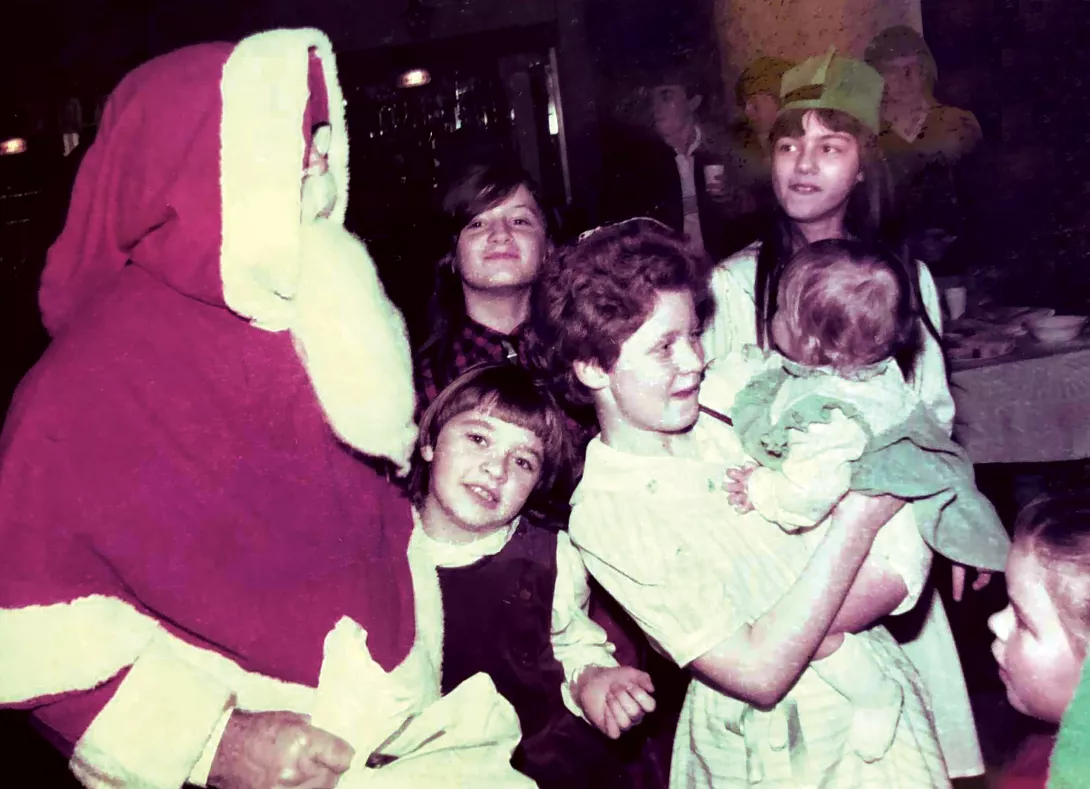
THE strike had now been going on for months, and as Christmas approached, our little band of strong Easington women decided we wanted to provide at least one new present for each child.
No mean feat, especially as we had no idea how many children there were, what sex, what age or where they lived.
Hey — we were up for it, though, so we formed a plan! We sent the men to each house to get as many details as possible.
I don’t think they were happy with the task we set for them, but they knew we were adamant, so they just got on with it after mumbling a few expletives under their breaths.
Our local Co-op was only using half of their building, so we asked if we could use the vacant area.
The space we had was about 20m by 15m, a vast space, we thought. Plenty of room for what we had planned, but we almost outgrew it as things started to come together.
We lined the walls with the name of each street in the colliery, and once those nameplates went up to say we were shocked is an understatement — the task ahead was now coming clear, and it wasn’t going to be a walk in the park.
The men came back with their lists of all the children, and if I’m honest, we were shocked at the numbers. We hadn’t thought there would be so many bairns, but we had made the decision, so we had no alternative but to go ahead.
We had been saving as much as we could, and then donations of cash for Christmas started to flood in.
People from anywhere and everywhere sent toys, which were delivered to our group and then shared between other groups in the Easington district. That was the deal, you see — any money or donations of any kind you raised in your village you kept, but anything received from outside the district was shared between the 16 groups.
We were given nearly new toys, which we cleaned up, soft toys, washed, dried and brushed up as new.
The local timber merchant gave us all the off-cuts he had, so we asked for joiners to come forward — and they did. They made forts, dolls, houses and farms with miniature wooden animals.
The second-hand bikes we were given were spruced up, painted, oiled and ready for their next owner.
Those who wanted the wooden toys or the bikes put their child’s name in a hat, and if you were lucky, your bairn got extra in their bundle. It was the only way we could do it; there weren’t enough of the bigger toys to go around, and it worked — our plan worked, or at least this part did.
Dave Beddell from print union the Society of Graphical and Allied Trades, managed to get us boxes and boxes of sweets at cost price. We stored them in my mam’s and dad’s spare bedroom.
One day, my dad said to me, “When are you moving those sweets, Heather, because I think the floor is about ready to give way under their weight.”
So one night, we all took our own kitchen scales to my mam’s, and there we sat, weighing out a bag full of sweets for each bairn in the colliery.
Our savings plan came to fruition; we were able to buy one new thing for each child in our village except for teenage girls. We ran out of things for teenage girls, so off I went to one of the local shops.
The shop was packed, and I shouted across the room to the manager, “We’ve run out of things for teenage girls, and we’ve no money left.”
“Oh,” he says, “No worries, just take what you need and pay me when you can.”
I think we emptied the shelves of all things — smellies, perfume, deodorant, bath salts, you name it, we now had it, and all was well.
Each bag in each row was now full to overflowing, but now came the huge job of transporting them all up to the club, where parents would come to pick up their child’s bag of goodies.
Ooh, I nearly forgot, each bag included fruit and nuts kindly donated by local shops.
The Co-op had let us sort and store the toys, but we couldn’t distribute them from the Co-op premises.
Now came Secret Santa. The toys carefully loaded into whatever transport we could lay our hands on were taken to the colliery club, our centre and the following day, mams, dads, grannies, grandads, and whoever was free that day came to pick up their bairn’s presents.
Then came the turkeys. Our County Durham-wide group had arranged for lorryloads of turkeys to be delivered to each individual group.
Our groups on the east coast had met and decided that if a man lived in a village other than the one he worked in, then he would simply claim his turkey from the group in the village where he lived. No sense in making someone walk miles to pick up a turkey, was there now?
The lorry arrived at our centre, and the driver and his co-driver came into the club, both spoke not a word of English, and only one of us spoke at least “schoolboy French.” John Wood welcomed them and thanked them on our behalf while the rest of us smiled, shook hands and hugged the poor men.
We set up our tables, and just before we were due to start dishing out the turkeys, in came the union. Benny Handy walked in with other union men following.
“How are you dishing them out?” he said. I told him our plan, and he said, “No, you can’t do it that way, each man will have to go to his own pit regardless of how far away it is.”
Well, I was having none of it and shouted to the lasses: “Down tools, we are on strike!”
The union men were shocked, to say the least, and my mam said to my dad, look, Gordon, our Heathers brought the lasses out on strike. What are we going to do with all the turkeys?
That must have been one of the shortest strikes ever because not two minutes later, Handy came over and said, just do it the way you want.
That was the end of that — or so I thought. Someone shouted: “Heather, you’re wanted on the payphone in the lobby,” so off I trotted, wondering what was next.
It was the Seaham group. The union through there was trying to take over, so I said, “Just tell them Heather Wood says that’s the way it’s being done, full stop.”
My name must have gone before me because when each group rang, I gave the same advice as I had given the Seaham group, and I heard no more. The turkeys were distributed the way we had decided.
Christmas dinner — now that was a day. We fed over a thousand that day in our Easington group. The women dressed up, Jackie Parkin was Santa, the hall was decorated, and the tables were set for a feast, and a feast was had by every striking miner and his family.
I think it’s safe to say that what happened in our village happened in every other mining community throughout Britain. The whole thing, from start to finish, was just so emotional. Tears were shed, many tears, but they were, in the main, happy tears, tears of joy. There was going to be Christmas 1984. We had done it. The women had done it with the help of so many people.
Heather Wood is the former national secretary of Women Against Pit Closures.
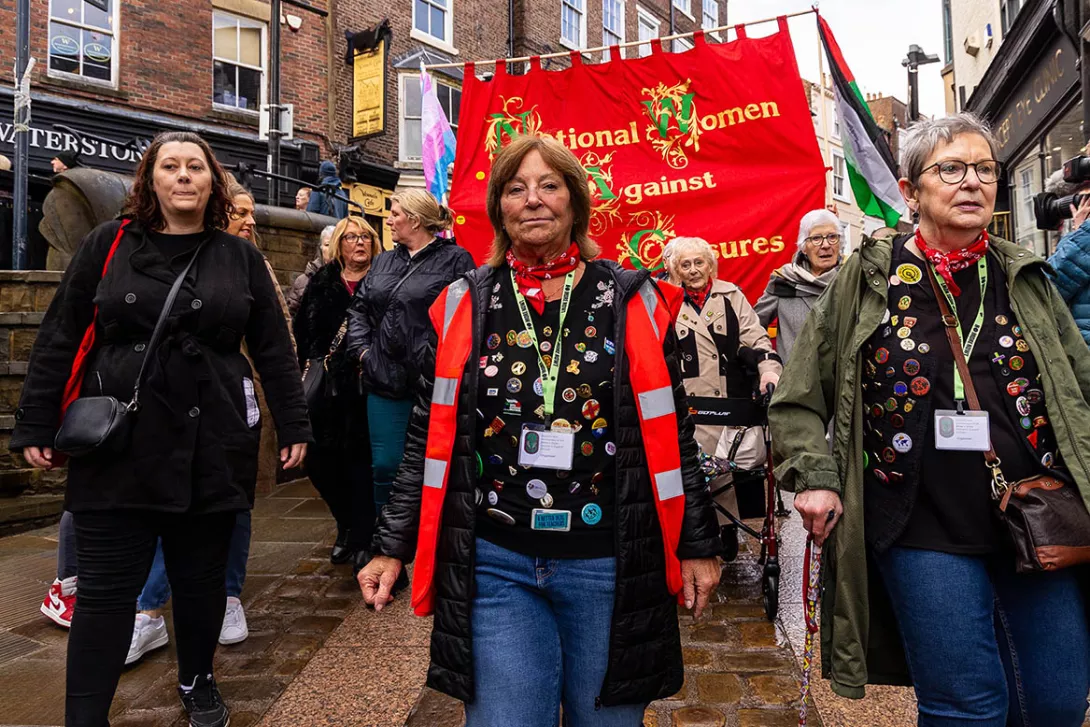

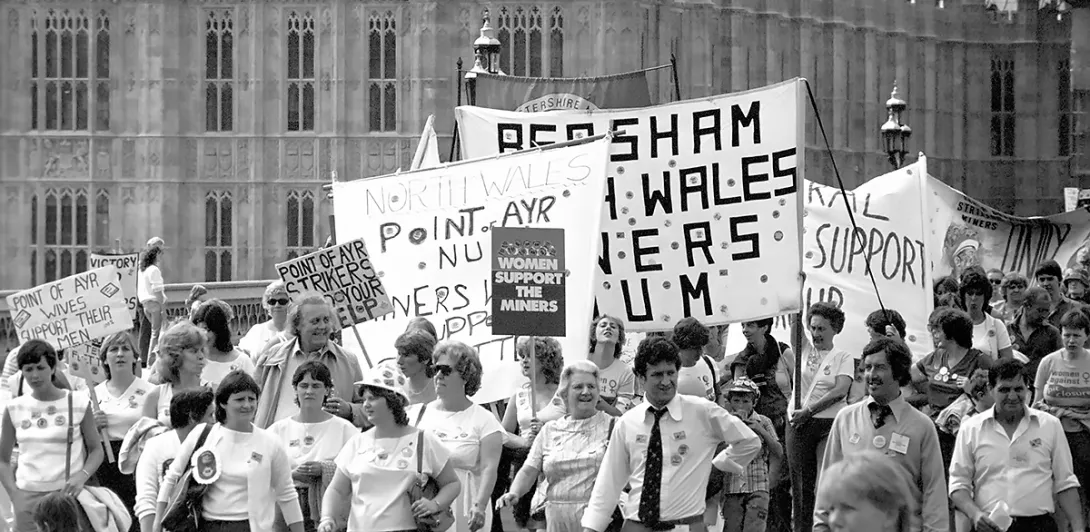
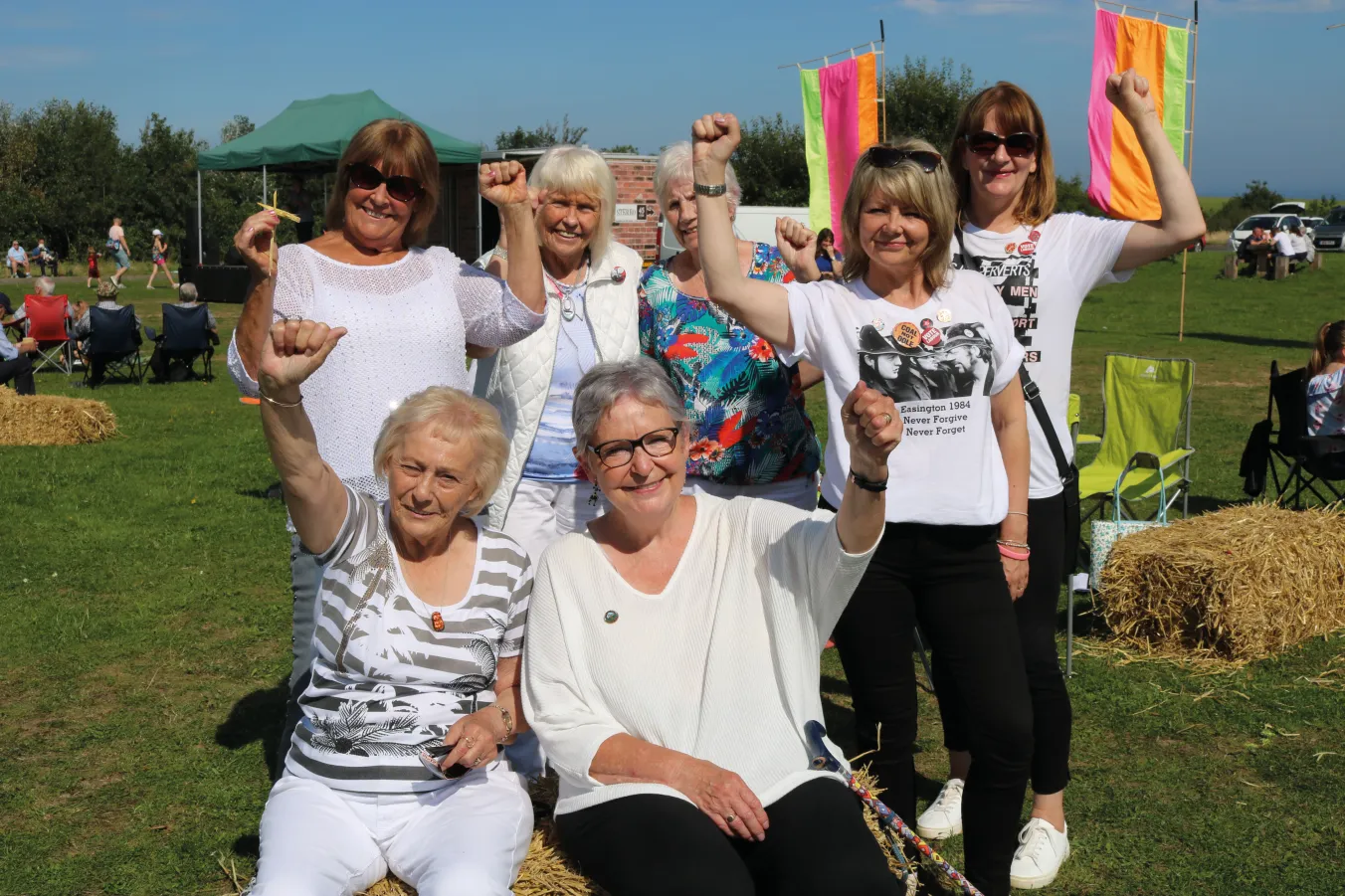
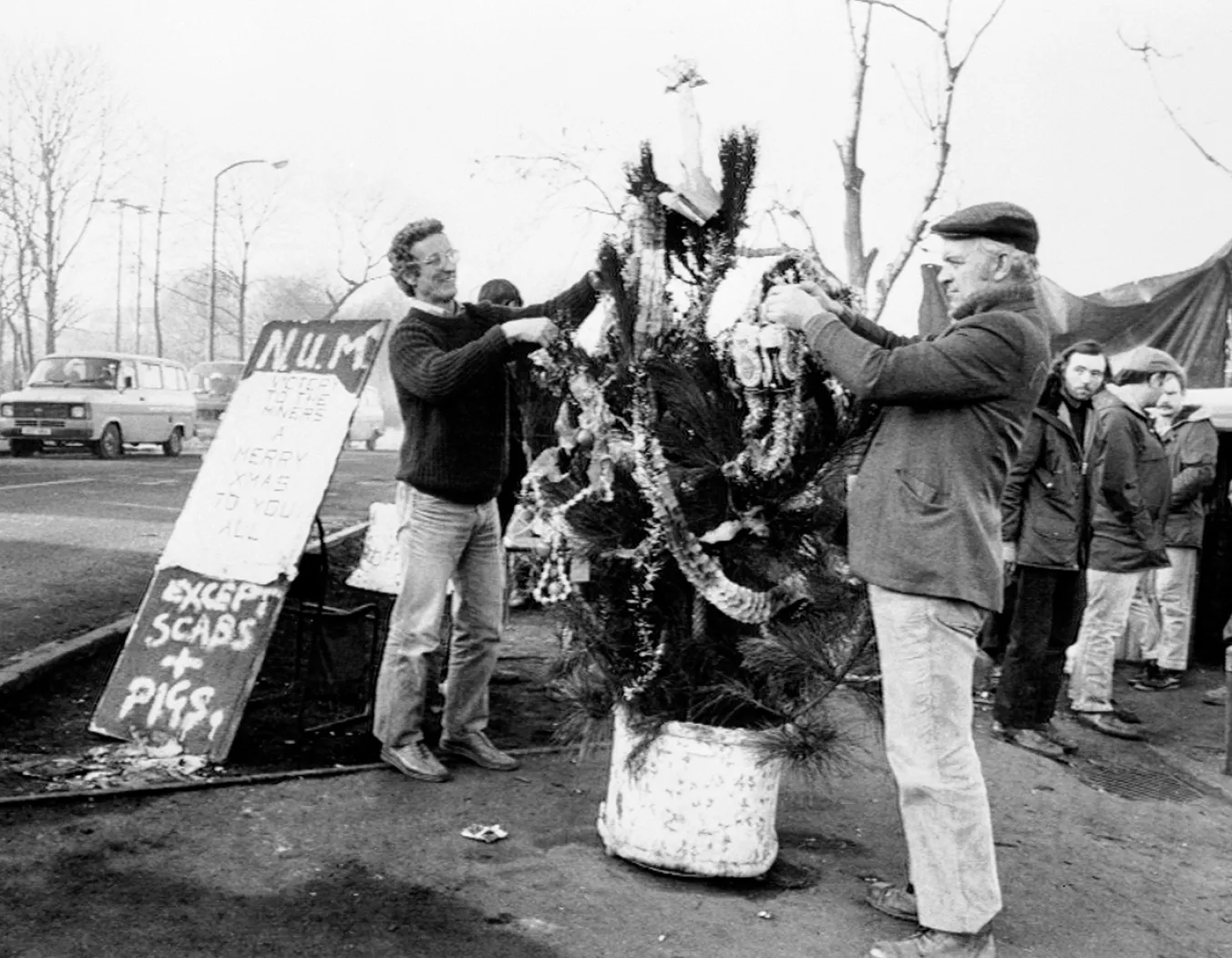


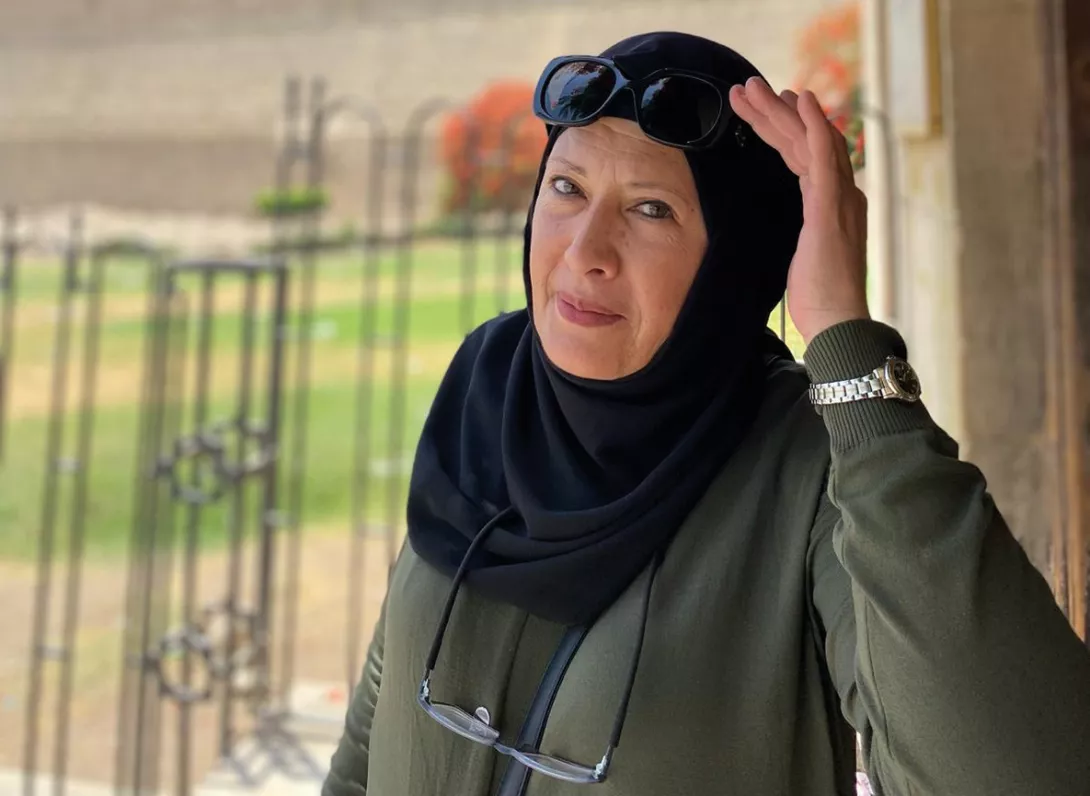


 Latest editorial
Latest editorial







